Kuwait, a gem nestled in the Arabian Gulf, offers a rich tapestry of culture, history, and modernity, making it an enticing destination for Nigerian tourists. With its stunning architecture, delectable cuisine, and hospitable atmosphere, Kuwait is perfect for travelers seeking a unique experience. This guide will provide detailed insights into the best places to visit, foods to try, accommodations, reasons to visit, and the visa application process.
Why Visit Kuwait?
- Rich Cultural Heritage: Kuwait’s history spans centuries, with influences from various civilizations. The blend of modernity and tradition is evident in its architecture, museums, and local markets.
- Vibrant Culinary Scene: Kuwaiti cuisine reflects the country’s culture and traditions, offering an array of flavors and dishes that are both rich and diverse.
- Beautiful Landscapes: From its pristine beaches to the expansive desert, Kuwait offers stunning natural beauty. The coastal views are particularly breathtaking, providing a perfect backdrop for relaxation.
- Hospitality and Warmth: Kuwaitis are known for their hospitality, making visitors feel welcomed and at home. Engaging with locals offers an enriching experience that enhances the overall journey.
- Modern Attractions: The country boasts numerous modern attractions, including shopping malls, entertainment complexes, and cultural institutions, catering to various interests.
Best Places to Visit
Kuwait Towers
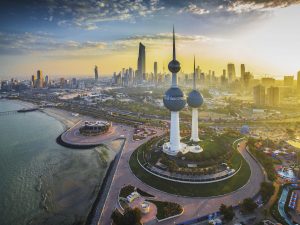
The Kuwait Towers are one of the most iconic landmarks in Kuwait, representing a blend of modern architecture and traditional culture. Completed in 1979, these three towers stand majestically along the Arabian Gulf, showcasing the nation’s aspirations and resilience. The towers are designed in a unique shape, with the tallest standing at 187 meters (614 feet). The design features a large spherical tank at the top of the main tower, which serves as a water reservoir. The towers are adorned with blue mosaic tiles that reflect the colors of the sea and sky, making them a stunning sight. Visitors can access an observation deck in the main tower, offering breathtaking 360-degree views of Kuwait City and the Gulf. This vantage point is perfect for photography and enjoying the panoramic landscape. The ideal time to visit the Kuwait Towers is during the cooler months from October to April. Sunset visits can be particularly breathtaking, providing a spectacular view as the sun sets over the horizon.
The Grand Mosque
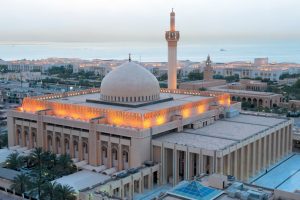
The Grand Mosque, also known as Al-Masjid Al-Kabir, is the largest mosque in Kuwait and one of the most significant religious sites in the country. Completed in 1986, this stunning architectural masterpiece is not only a place of worship but also a symbol of Islamic culture and heritage. The Grand Mosque features a magnificent blend of traditional Islamic and modern architectural styles. Its stunning façade is adorned with intricate mosaics, calligraphy, and decorative elements, showcasing the beauty of Islamic art. The mosque is complemented by a large central dome, surrounded by several smaller domes, which contribute to its majestic appearance. The mosque can accommodate up to 10,000 worshippers at a time, making it a vital space for religious gatherings and community events. Its expansive prayer hall is equipped with beautifully designed carpets and grand chandeliers, creating an atmosphere of tranquility and reverence. Visitors are welcome to explore the mosque through guided tours that offer insights into its architecture, history, and significance in Kuwaiti culture. The tours provide a unique opportunity to learn about Islamic practices and the role of the mosque in the community. As a symbol of Kuwait’s rich Islamic heritage, the Grand Mosque plays a vital role in the country’s spiritual life. It hosts various religious events, lectures, and community activities, making it a hub for cultural exchange and education. The Grand Mosque is open to visitors throughout the week, with specific hours for tours. It is advisable to dress modestly and respectfully when visiting, adhering to local customs and traditions. The mosque is especially beautiful during the cooler months from October to April. Early mornings or late afternoons provide a peaceful atmosphere for exploration and reflection.
The Avenues Mall
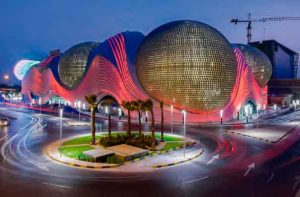
The Avenues Mall is one of the largest and most popular shopping destinations in Kuwait and the Middle East. Opened in 2007, this vast retail complex combines luxury shopping, dining, and entertainment, making it a must-visit for tourists and locals alike. The Avenues Mall features over 1,000 retail stores, ranging from high-end international brands to local boutiques. Visitors can find everything from fashion and electronics to cosmetics and home goods, ensuring that there is something for everyone. The mall’s diverse range of shops attracts fashion enthusiasts, tech lovers, and bargain hunters alike. In addition to shopping, The Avenues offers a wide array of dining options, including fast-food chains, casual eateries, and upscale restaurants. Visitors can enjoy a culinary journey with cuisines from around the world, including Italian, Asian, Middle Eastern, and American dishes. The mall’s food court is particularly popular for casual dining and socializing. The Avenues Mall provides various entertainment options, including a cinema complex showing the latest films and family-friendly attractions such as an indoor amusement park and arcade. These entertainment facilities make it an ideal destination for families looking to spend a fun-filled day together. The mall is not only a shopping haven but also an architectural masterpiece. It features a unique design that incorporates open spaces, natural light, and beautiful landscaping. The various themed districts within the mall, each representing different architectural styles, enhance the shopping experience and provide visitors with visually stunning surroundings. The Avenues Mall hosts a variety of events and activities throughout the year, including seasonal celebrations, cultural festivals, and entertainment shows. These events offer visitors a chance to engage with local culture and traditions while enjoying their shopping experience. The mall is conveniently located in the Al-Rai area of Kuwait City and is easily accessible by public transport or taxi. It operates daily, with extended hours during weekends, making it a convenient destination for tourists. The best time to visit The Avenues Mall is during the cooler months from October to April, when outdoor activities are more enjoyable. Weekdays are typically less crowded than weekends, allowing for a more relaxed shopping experience.
A visit to The Avenues Mall is an essential part of experiencing modern Kuwait, offering a blend of shopping, dining, and entertainment that reflects the country’s cosmopolitan lifestyle. Whether you’re looking to indulge in luxury shopping or enjoy a delicious meal, The Avenues Mall is sure to provide a memorable experience.
National Museum of Kuwait
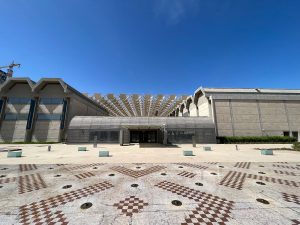
The National Museum of Kuwait is a prominent cultural institution that showcases the rich history, heritage, and artistic achievements of Kuwait and the broader Gulf region. Established in 1983, the museum serves as a treasure trove of artifacts, exhibitions, and educational resources, making it a must-visit for anyone interested in understanding Kuwaiti culture and history. The museum features several galleries that house a diverse collection of artifacts, including archaeological finds, traditional crafts, and historical documents. Notable exhibits include:
- Archaeological Artifacts: Visitors can explore artifacts dating back to ancient civilizations, including pottery, tools, and jewelry that illustrate the region’s rich history.
- Islamic Art: The museum showcases a collection of Islamic art and manuscripts, highlighting the artistic and cultural contributions of the Islamic world.
- Traditional Crafts: Exhibits also feature traditional Kuwaiti crafts, such as textiles, ceramics, and metalwork, showcasing the country’s cultural heritage.
The National Museum plays a vital role in preserving and promoting Kuwaiti heritage. It provides insights into the daily life, traditions, and customs of the Kuwaiti people, fostering a deeper understanding of the country’s cultural identity. The museum offers various educational programs, workshops, and guided tours for visitors of all ages. These initiatives aim to engage the public and promote awareness of Kuwait’s history and culture, making it a valuable resource for students, researchers, and tourists. The museum building itself is an architectural masterpiece, featuring a blend of modern and traditional design elements. Its spacious layout and well-organized galleries create an inviting atmosphere for exploration and discovery. The National Museum of Kuwait is located in the heart of Kuwait City, making it easily accessible for tourists. It is advisable to check the museum’s official website for current opening hours and admission fees, as these can vary. The museum is best visited during the cooler months from October to April when the weather is pleasant for exploring. Weekdays tend to be quieter, allowing for a more leisurely experience.
A visit to the National Museum of Kuwait offers a unique opportunity to delve into the country’s past and appreciate its cultural richness. Whether you’re a history buff, art enthusiast, or simply curious about Kuwaiti culture, the museum promises an enriching experience that highlights the heritage and identity of this vibrant nation.
Souk Al-Mubarakiya
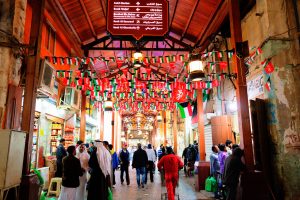
Souk Al-Mubarakiya is one of the oldest and most vibrant markets in Kuwait, offering a glimpse into the country’s rich cultural heritage and traditional commerce. Established in the early 20th century, this bustling marketplace is a must-visit for tourists seeking an authentic Kuwaiti shopping experience. Souk Al-Mubarakiya is alive with the sights, sounds, and smells of a traditional market. Visitors can immerse themselves in the lively atmosphere filled with local vendors, colorful displays of goods, and the chatter of shoppers. The souk captures the essence of Kuwaiti culture, making it a perfect spot for those looking to experience local life. The market features a wide variety of products, including:
- Spices and Herbs: The air is fragrant with the aroma of fresh spices and herbs, available in vibrant displays. Visitors can find an array of seasonings, from saffron to za’atar, perfect for those looking to bring a taste of Kuwait back home.
- Textiles and Fabrics: Souk Al-Mubarakiya offers an assortment of traditional textiles, including beautiful scarves, carpets, and clothing. Shoppers can find unique items that reflect the region’s rich textile heritage.
- Local Handicrafts: Visitors can browse stalls filled with handmade crafts, jewelry, pottery, and other artisanal products, supporting local artisans and craftsmen.
The souk is also a fantastic destination for food lovers. Visitors can indulge in traditional Kuwaiti dishes and street food, such as:
- Kuwaiti Falafel: A local twist on the classic dish, served with fresh toppings.
- Maqbus: A flavorful rice dish cooked with meat, spices, and vegetables.
- Fresh Juices: Enjoy refreshing fruit juices from local vendors, perfect for a warm day.
Souk Al-Mubarakiya is not just a shopping destination but also a cultural hub that reflects the traditions and values of Kuwaiti society. The market has long been a gathering place for locals to socialize, trade, and celebrate community life. Located in the heart of Kuwait City, Souk Al-Mubarakiya is easily accessible for tourists. The market operates daily, but visiting on weekends offers a more vibrant experience, as it tends to be bustling with both locals and tourists. The best time to visit is during the cooler months from October to April, when outdoor activities are more enjoyable. Evening visits are particularly charming, as the souk is beautifully lit and bustling with activity.
A trip to Souk Al-Mubarakiya is an essential part of experiencing the authentic side of Kuwait. Whether you’re shopping for souvenirs, tasting local delicacies, or simply soaking in the lively atmosphere, the souk promises an unforgettable cultural experience that highlights the charm and warmth of Kuwaiti hospitality.
Failaka Island
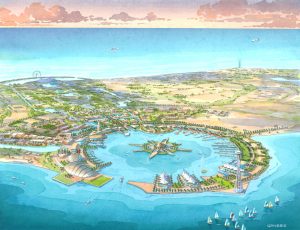
Failaka Island is a captivating destination located just a short boat ride from the mainland of Kuwait. Known for its rich history, stunning landscapes, and archaeological sites, the island offers a unique blend of cultural heritage and natural beauty, making it a perfect getaway for tourists. Failaka Island has a long and storied history, dating back to ancient times. It was once an important trading hub for the Dilmun civilization and later served as a site for Greek and Islamic settlements. Visitors can explore the remnants of these ancient civilizations, including archaeological sites that showcase artifacts, ruins, and inscriptions that tell the story of the island’s past.
Among the notable sites on Failaka Island are:
- The Greek Temple: Ruins of a temple dedicated to the Greek god Hercules can be found on the island, reflecting its historical significance during the Hellenistic period.
- Dilmun Burial Mounds: These ancient burial sites provide insight into the funerary practices of the Dilmun civilization and are a testament to the island’s historical importance.
Failaka Island is characterized by its stunning landscapes, featuring sandy beaches, clear turquoise waters, and lush greenery. The island is an excellent spot for nature lovers and outdoor enthusiasts, offering opportunities for activities such as:
- Swimming and Snorkeling: The pristine beaches are perfect for a refreshing swim, while the surrounding waters offer excellent snorkeling opportunities to explore marine life.
- Picnicking and Relaxation: The island’s serene environment makes it a great place to relax and unwind. Visitors can enjoy picnics by the beach, taking in the beautiful views of the Arabian Gulf.
Failaka Island also offers various adventure activities for those looking for excitement. Options include:
- Dune Bashing: Explore the island’s sandy dunes with exhilarating dune bashing experiences.
- Water Sports: Engage in activities such as jet skiing, kayaking, and paddleboarding, making the most of the island’s beautiful coastline.
Failaka Island is accessible via ferry services that operate regularly from the mainland. It is advisable to check the ferry schedules in advance to plan your visit. There are limited facilities on the island, so visitors should consider bringing supplies for the day. The ideal time to visit Failaka Island is during the cooler months from October to April. This period offers pleasant weather for outdoor activities and exploration.
A trip to Failaka Island promises a unique blend of history, adventure, and relaxation. Whether you’re interested in exploring ancient ruins, enjoying water sports, or simply soaking up the sun on beautiful beaches, Failaka Island provides an enriching experience that highlights the natural beauty and cultural heritage of Kuwait.
Kuwait Scientific Center
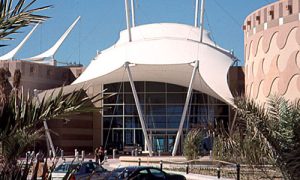
Kuwait Scientific Center (KSC) is a remarkable destination that offers an engaging blend of education, exploration, and entertainment. Located along the picturesque Arabian Gulf in Kuwait City, this center serves as a vital resource for understanding science, technology, and the environment. As a Nigerian tourist, visiting KSC is an opportunity to immerse yourself in interactive exhibits, marine life, and cultural history.
The centerpiece of KSC is its expansive Aquarium, which is one of the largest in the Middle East. This underwater paradise allows visitors to explore a diverse array of marine ecosystems.
- Highlights: The aquarium features captivating displays of fish, corals, and other marine creatures, including sharks, rays, and colorful reef fish. The main tank, which houses sand tiger sharks and various species of fish, offers a breathtaking view as you walk through the underwater tunnel, feeling as if you are submerged in the ocean.
- Educational Insights: Informative panels throughout the aquarium educate visitors about marine life, conservation efforts, and the importance of preserving marine ecosystems, making it both an enjoyable and enlightening experience.
KSC’s Discovery Place is designed to spark curiosity and encourage learning through interactive exhibits and hands-on activities.
- Fun for All Ages: This area features a variety of scientific displays that cover topics like physics, biology, and chemistry. Children can engage in experiments, build structures, and participate in challenges that promote critical thinking and teamwork.
- Workshops and Events: Regular workshops and educational programs are conducted, allowing families and school groups to learn about science in an engaging environment.
The IMAX Theater at KSC provides an extraordinary cinematic experience. With a massive screen and surround sound, visitors can enjoy high-quality documentaries that cover a range of topics, from nature and wildlife to space exploration.
- Cultural and Environmental Films: The theater often features films that highlight the beauty of the natural world and the importance of conservation, aligning perfectly with the center’s educational mission.
Adjacent to the center is the Dhow Harbor, where visitors can explore traditional Kuwaiti boats known as dhows. These wooden vessels were historically used for pearl diving and trade, playing a significant role in Kuwait’s maritime history.
- Cultural Significance: The harbor showcases the craftsmanship involved in dhow construction and highlights the cultural importance of these boats in Kuwaiti society.
KSC is committed to promoting environmental awareness and sustainability. Visitors can learn about marine conservation efforts and participate in initiatives aimed at protecting Kuwait’s natural resources.
- Exhibits on Sustainability: The center often hosts exhibitions that focus on environmental issues, showcasing innovative solutions and encouraging visitors to engage in sustainable practices.
The Kuwait Scientific Center is conveniently located in Kuwait City and is accessible by public transport or taxi. It is advisable to check the center’s website for current operating hours and ticket prices, as they may vary throughout the year. The best time to visit KSC is during the cooler months, from October to April, when the weather is pleasant for outdoor exploration. Weekdays are ideal for a quieter experience, while weekends tend to be more crowded with families and school groups.
A visit to the Kuwait Scientific Center offers Nigerian tourists an enriching experience that combines learning with adventure. Whether you’re marveling at the wonders of marine life, engaging in interactive exhibits, or enjoying a thrilling IMAX film, KSC promises a day filled with discovery and enjoyment for visitors of all ages.
Best Foods to Try
- Machboos: This traditional spiced rice dish is often made with chicken, lamb, or fish. It is the cornerstone of Kuwaiti cuisine, offering rich flavors and satisfying portions.
- Kebabs: Kuwaiti kebabs are renowned for their tenderness and flavor. Often marinated with spices and grilled to perfection, they are a popular choice for meat lovers.
- Fattoush: A refreshing salad made from mixed greens, tomatoes, cucumbers, and crispy bread, fattoush is a delightful way to experience local flavors.
- Harees: Commonly eaten during Ramadan, harees is a slow-cooked dish made from wheat and meat, resulting in a hearty and nutritious meal.
- Kuwaiti Sweets: Indulge in traditional desserts such as baklava and maamoul, often made with nuts and filled with dates. These sweet treats are perfect for satisfying your cravings.
- Qamar al-Din: This apricot juice is a popular drink, especially during Ramadan. It’s refreshing and widely available in local markets.
Best Places to Stay
- The Regency Hotel: Located along the coast, The Regency Hotel offers luxury accommodations with stunning sea views. Guests can enjoy multiple restaurants, a spa, and a private beach.
- Jumeirah Messilah Beach Hotel & Spa: This upscale beachfront resort provides a perfect combination of relaxation and recreation, featuring luxurious rooms, pools, and various dining options.
- Hilton Kuwait Resort: Nestled on the shores of the Arabian Gulf, this resort offers a mix of luxury and leisure, with well-appointed rooms, multiple dining venues, and expansive pool areas.
- Four Seasons Hotel Kuwait at Burj Alshaya: This luxurious hotel blends modern amenities with traditional Arabian hospitality, offering exquisite dining experiences and a world-class spa.
- Ibis Kuwait Salmiya: Ideal for budget travelers, Ibis provides comfortable accommodations at reasonable rates. It’s convenient location near shopping and dining options makes it a practical choice.
Visa Application Process
Nigerian tourists planning to visit Kuwait will need to obtain a tourist visa. Here’s a simplified application process:
Gather Required Documents:
- A valid passport with at least six months of validity. Recent passport-sized photographs.
- Proof of accommodation (hotel booking).
- A round-trip flight itinerary.
- Bank statements or proof of sufficient funds for the duration of your stay.
- A completed visa application form.
Submit Your Application: Applications can be submitted through the nearest Kuwaiti embassy or consulate. It’s advisable to check their official website or contact them for specific submission procedures and any additional requirements.
Pay the Visa Fee: There is typically a visa fee that must be paid upon submission. The amount can vary, so confirm the fee with the embassy or consulate.
Processing Time: Visa processing can take several days to weeks, so it’s best to apply well in advance of your intended travel dates.
Kuwait is a remarkable travel destination for Nigerian tourists, offering a rich cultural experience, delectable cuisine, and warm hospitality. Whether you’re exploring historical sites, indulging in local flavors, or relaxing in luxurious accommodations, Kuwait promises an unforgettable adventure. Make sure to prepare your visa application well in advance and get ready to explore all that this fascinating country has to offer.


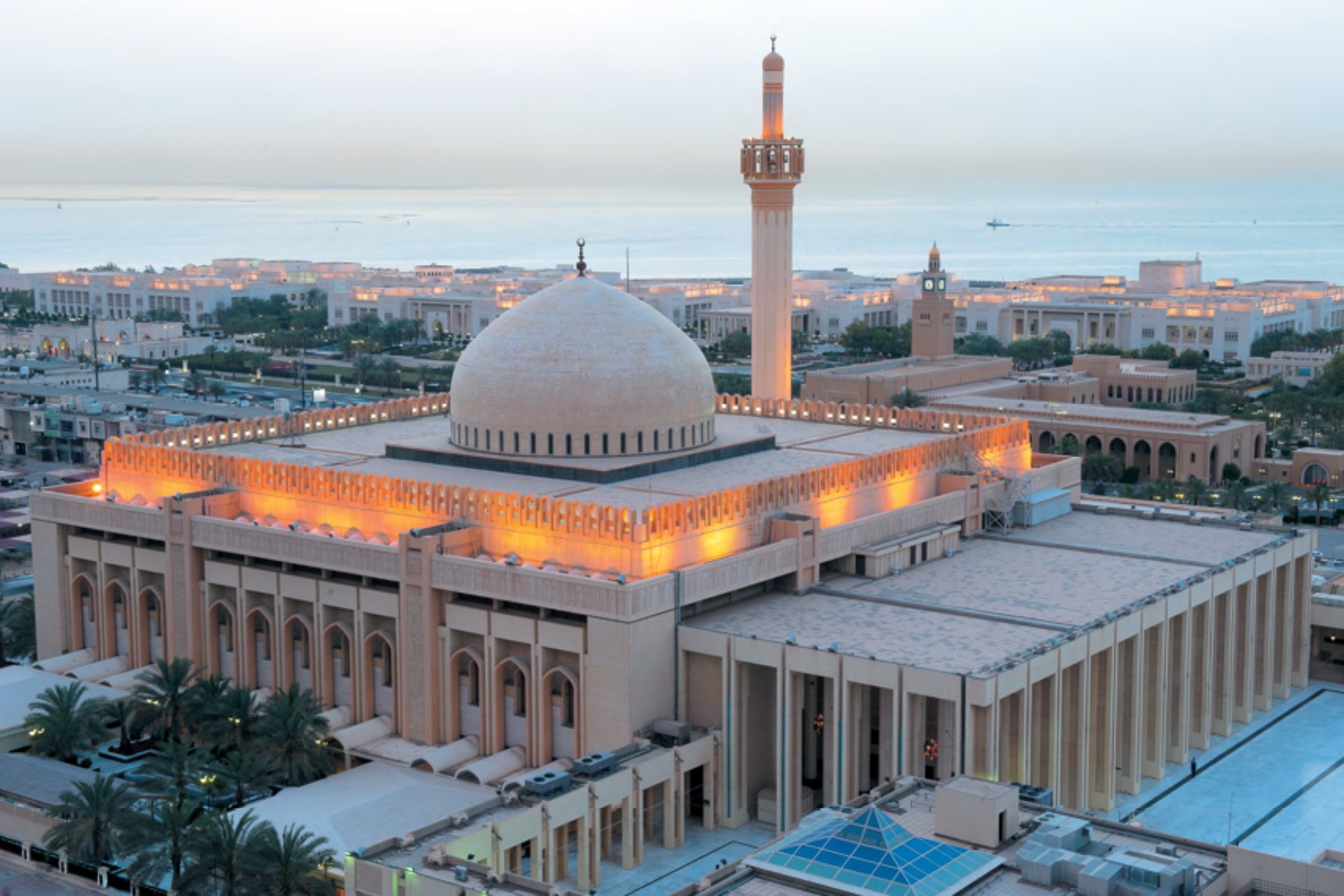



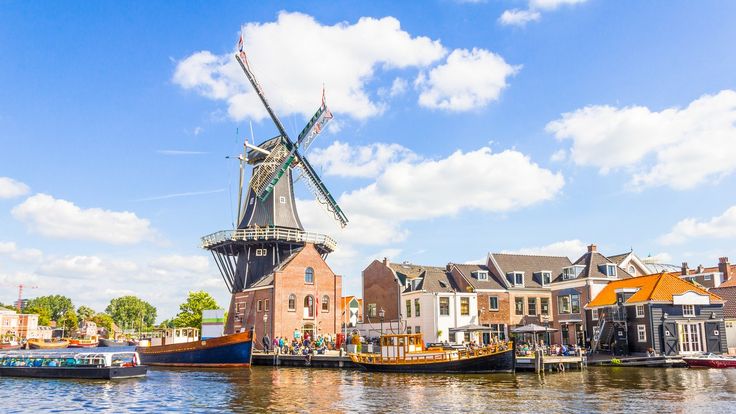

Leave a Comment